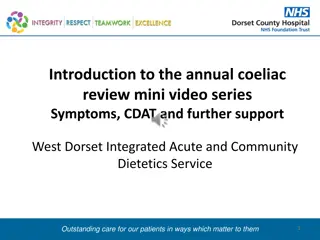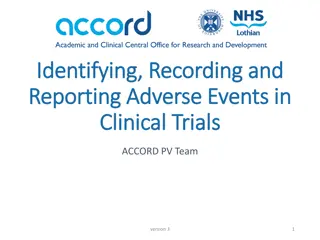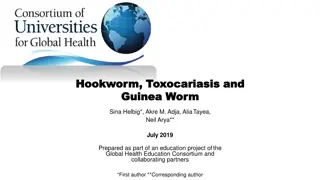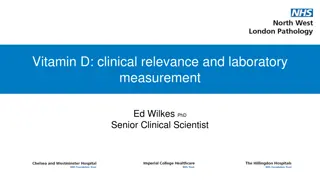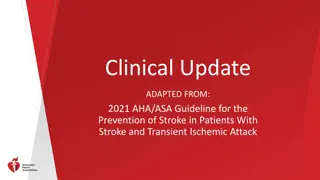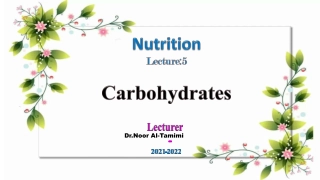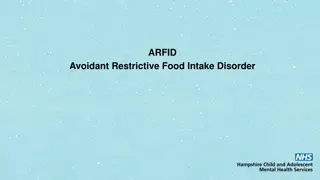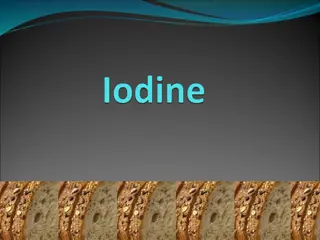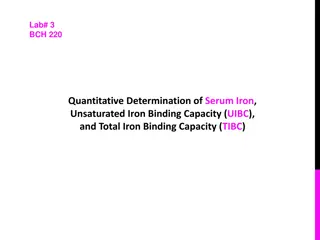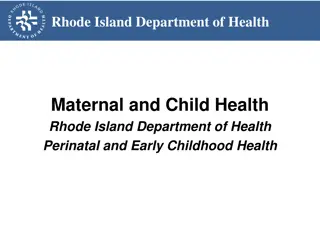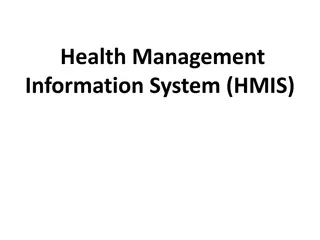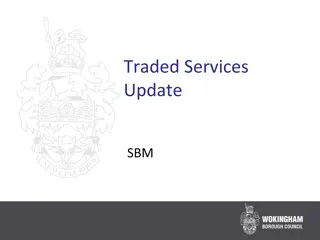Update on B12 Deficiency Guidance by Lothian Health Services
Vitamin B12 deficiency is a complex condition with various manifestations, including neurological symptoms. The updated guidelines address key areas such as neuro symptoms, coeliac disease, and transitioning from intramuscular to oral treatment. Testing indications and approaches for pernicious anaemia are also discussed, emphasizing the importance of comprehensive evaluation and appropriate management strategies.
Download Presentation

Please find below an Image/Link to download the presentation.
The content on the website is provided AS IS for your information and personal use only. It may not be sold, licensed, or shared on other websites without obtaining consent from the author. Download presentation by click this link. If you encounter any issues during the download, it is possible that the publisher has removed the file from their server.
E N D
Presentation Transcript
Lothian B12 guidance update Dr Sara Jenks Consultant Chemical pathology/Metabolic Medicine On behalf of B12 guideline team - Nadeen Brown (GP), Catriona Morton (GP), Alice Klauser (Haematology), Kirsty McCance (Biochemistry), Peter & Helen Gillet (GI), Richard Davenport, Jon Stone (Neuro), Charu Chopra (Immunology)
Guideline B12 deficiency (nhslothian.scot) Similar to current guideline but additional sections with added info re: Neuro symptoms Coeliac Discontinuing treatment/switching from IM to oral
Background Vitamin B12 is an enzyme cofactor - required for the development, myelination, and function of the central nervous system; healthy red blood cell formation; and DNA synthesis Deficiency is not straightforward to define markers used include total B12 levels, holocobalamin ( active B12 ), Urine methyl malonic acid and homocysteine none are perfect
When to test Macrocytosis +/- anaemia or strong clinical suspicion with no other identifiable cause e.g. visual disturbance, memory loss, psychiatric abnormalities, peripheral neuropathies, oral glossitis/ulceration, malabsorption syndromes and cytopenias Tiredness alone is not an indication for testing Metformin treatment alone is not an indication for testing
Pernicious anaemia if B12 <180 lab will automatically add IF antibodies IF Ab positive IF Abs are reasonably specific a positive result suggests a diagnosis of pernicious anaemia IF Ab negative 30-50% of individuals with pernicious anaemia are IF Ab negative. There is NO role for gastric parietal cell antibody testing - poorly specific and a negative result does not rule out pernicious anaemia. In individuals who are IF Ab negative and fail to respond to the max oral dose of cyanocobalamin consider a diagnosis of pernicious anaemia
B12 & neuro symptoms - Neurological symptoms may be the only manifestation of B12 deficiency - can occur with normal B12 levels (rare). - Symptoms include: lower limb sensory symptoms suggestive of either a spinal cord lesion (subacute combined degeneration or peripheral neuropathy in particular proprioception and vibration loss) or visual (optic neuropathy).
B12 & neuro symptoms - Sensory symptoms are common in the normal population - Modestly reduced B12 levels (e.g. 125 to 180pg/mL) are often false positives (i.e. there is no connection between the symptoms and result) - People with mild or intermittent lower limb sensory symptoms, retained ankle reflexes or normal vibration sense at the toes are unlikely to have a B12 deficiency related neurological syndrome. Most such people, especially if symptoms are variable and intermittent, can be managed conservatively - For people with mild sensory symptoms who have been started on IM treatment and are not responding it is unlikely that the symptoms were due to B12 deficiency. - Consider alternative explanations and discontinue alt day IM treatment after 2 weeks. Maintenance may then be via the oral route unless there is a specific indication for IM
B12 & neuro symptoms - Significant B12 neurological symptoms can take several months to improve and may not recover completely even with replacement. Suggest wait at least 3 months for a clinical response. - Seek specialist advice only if symptoms are severe, there is diagnostic uncertainty and a neurology opinion is required to help determine the cause.
Coeliac disease & B12 deficiency Vitamin B12 levels should be measured at time of diagnosis of Coeliac Disease. Low B12 levels are likely to be secondary to malabsorption and should improve with gluten exclusion. Intrinsic Factor should be checked as a dual diagnosis of Pernicious anaemia and coeliac disease is possible In adults it is prudent to give intramuscular replacement initially, but then move to oral, or no, B12 supplementation once the anti-tTG has normalised. A small number of patients will have ongoing poor dietary compliance, with high Anti-tTG, and may need ongoing supplementation, some by injection.
Switching from IM to oral OR discontinuing B12 treatment - Lack of evidence/guidance on which to base best practice - Body stores can last anything from 1 11 years, although the consensus suggests 2-4 years. - So for individuals previously on B12 treatment it may take years for their liver B12 stores to become depleted after treatment cessation and the B12 deficiency may recur if the cause has not been addressed.
Length of checks depends on how likely is is that the patient may have undiagnosed pernicious anaemia or another malabsorptive state meaning that over time their B12 levels will once again become depleted. - NB: Individuals with pernicious anaemia or significant neurological symptoms with a clear response to IM B12 treatment should usually continue on IM B12 treatment lifelong -
Questions? If felt useful to have a longer educational session on this let us know
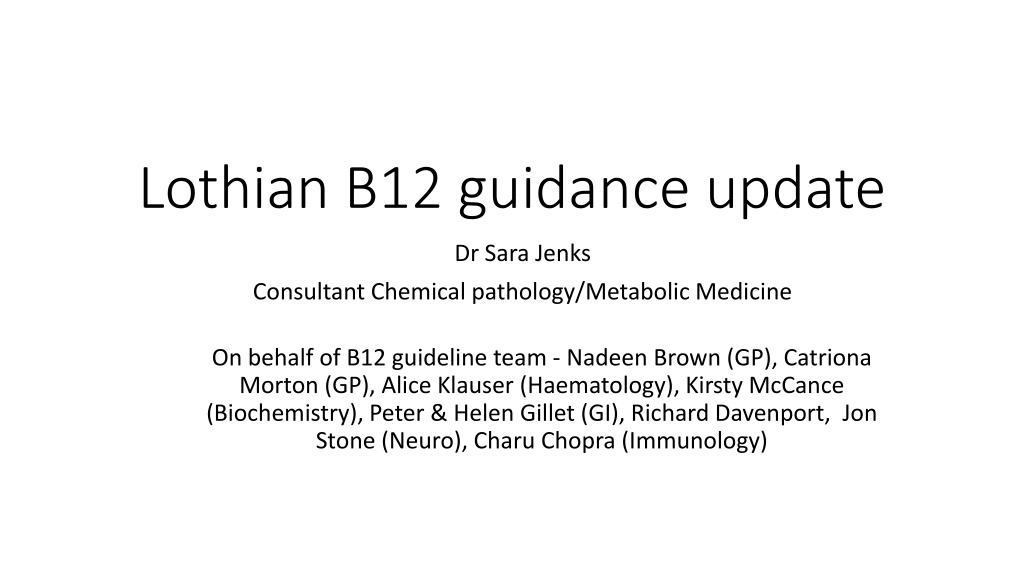




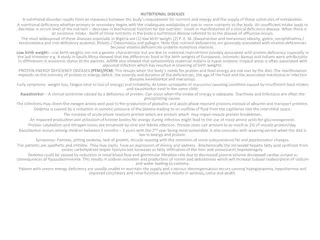
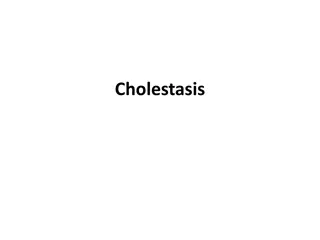
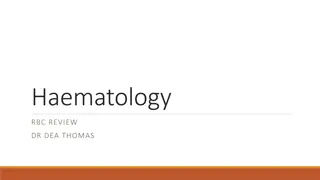


![Briefing on the Criminal Procedure Amendment Bill [B12-2021] to the Portfolio Committee on Justice and Correctional Services](/thumb/157093/briefing-on-the-criminal-procedure-amendment-bill-b12-2021-to-the-portfolio-committee-on-justice-and-correctional-services.jpg)

